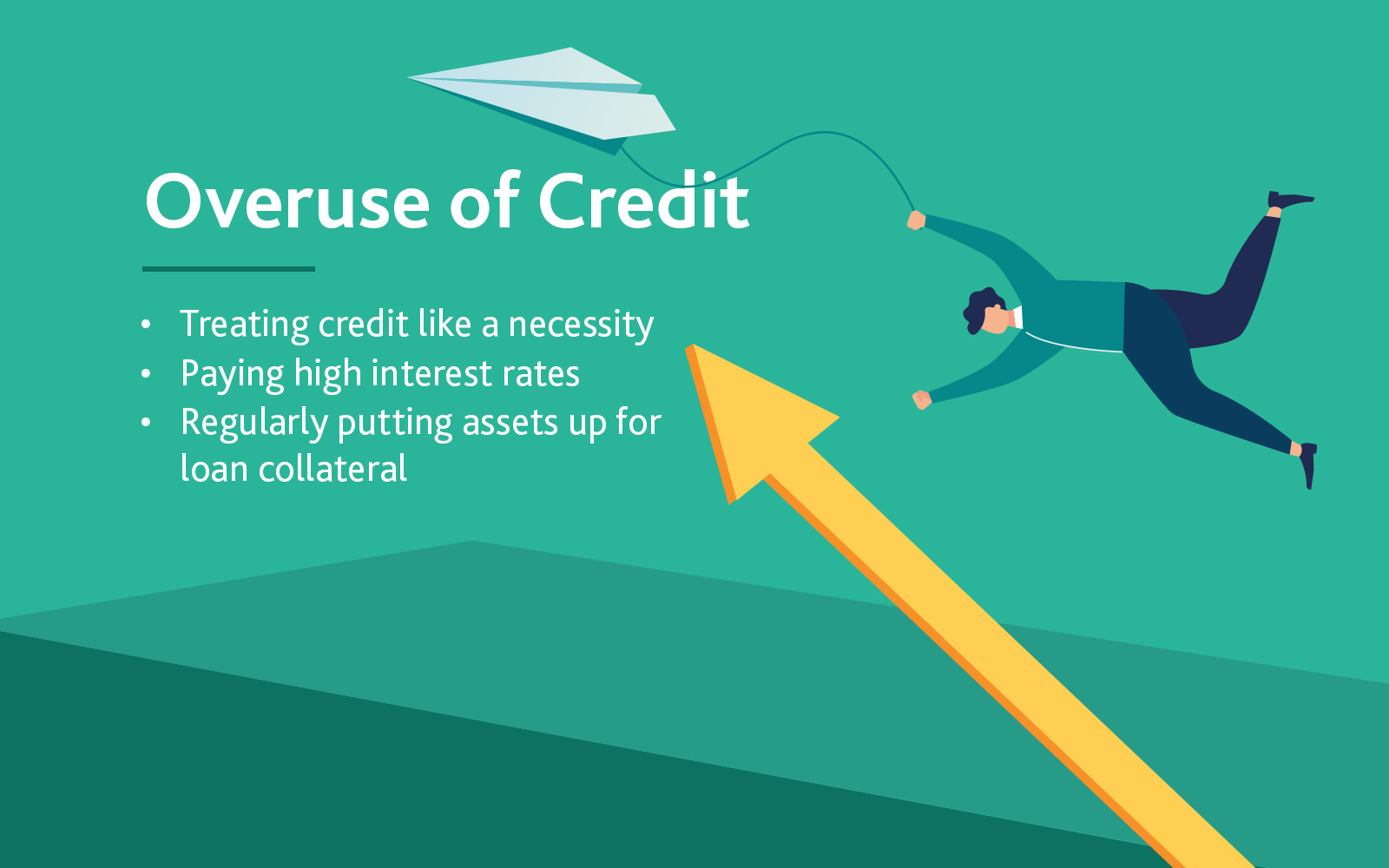2025-10-30
Debt traps and financial nightmares
Lifestyle Debt
Many Canadians are stuck in payday loan cycles. Learn how debt traps form, why they’re harmful, and what you can do to escape and regain control.
2022-11-01
3 minute read
Household overspending is one of the most common causes of financial insolvency. Unfortunately, it’s also one of the easiest to overlook.

Overspending tends to creep up slowly and camouflage itself as a different kind of financial challenge. We’d rather blame the unexpected car repair than acknowledge we’ve been saving less and less for emergencies. We’re more likely to notice the higher interest charge on our credit card bill than remember that extra dinner out.
But it’s not all bad news. Because once you know the symptoms, they’re almost impossible to ignore. And you can eliminate overspending almost entirely by introducing just three straightforward techniques.
There are numerous reasons you might find yourself delaying normal purchases or bill payments until pay day. But if the delays seem to be getting more frequent your bank account balance seems to be shrinking between paycheques, your spending habits almost certainly require deeper scrutiny.
A budget can be extremely helpful for planning, tracking, and optimizing your spending. It won’t increase your income, but it can help you stretch your current earnings a whole lot further. Here’s how:
If you’re new to budgeting, we have an in-depth overview here and a free spreadsheet template here to help you begin.
Are you saving at least 10 percent of your income to prepare for retirement, protect against any unforeseen costs, and support longer-term spending goals? If this is consistently a struggle for you, it might be a sign your spending priorities are out of alignment — and could potentially foreshadow more serious financial difficulties ahead.
The most effective savers tend to treat it like any other living expense. They pay themselves as diligently and consistently as they pay their rent or mortgage.
Use one (or both) of the following options to automate your savings:
For added assurance, you might also consider opening a savings account at a different financial institution than you typically bank with. Request there not be a debit card connected to that account. This keeps your savings available but increases the number of steps required to access it — which may encourage you to think more deeply about your spending and reconsider any non-essential purchases.
Credit cards are a horrible way to borrow money. With average interest rates nearing 20 percent, so a small monthly balance can quickly spiral into an unmanageable debt. If you consistently find yourself charging more on your credit card than you can pay off every month, pay attention. This is a warning sign of severe financial difficulty ahead.
Credit cards are a convenient payment tool that can potentially earn you cash back or loyalty points while helping you build a positive credit history. But it’s easy to misuse them or underestimate the risks involved. Boundaries will help you take advantage of the credit card benefits while avoiding many of the pitfalls.
Following are some effective rules that can help prevent over- or misusing your credit cards, and prevent credit card debt from sneaking up on you:
Life happens. We all make mistakes, and we’re all affected at times by circumstances beyond our control. Help is available and a financial fresh start is possible — even if your debt due to your own or someone else’s overspending.
Contact MNP for a Free Confidential Consultation to learn your options today. During this no-obligation initial meeting, a Licensed Insolvency Trustee will review your entire financial situation and ask about your challenges and goals. They will outline all the potential options available to you and provide an unbiased opinion on your best path forward. This may include Bankruptcy or a Consumer Proposal or could involve a different solution altogether.
No matter what you decide, we will make sure you have all the information, referrals and support you need to address your debt and overcome it for good.
2025-10-30
Lifestyle Debt
Many Canadians are stuck in payday loan cycles. Learn how debt traps form, why they’re harmful, and what you can do to escape and regain control.
2025-10-20
Alternatives to Bankruptcy Bankruptcy Consumer Proposal Lifestyle Debt MNP Consumer Debt Index
Just when seniors should be relaxing and enjoying the fruits of their labour, many find themselves struggling financially — an unsettling contrast to the ease they’d hoped to live their golden years.
2025-10-13
Debt Solutions Lifestyle Debt
When relationships end, shared debt can become a lasting burden. Here’s what to know about your responsibilities, risks, and financial options.